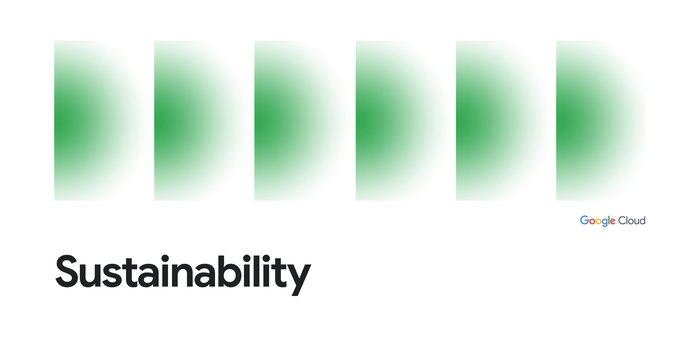Adopting real-world sustainability solutions with Google Cloud’s ecosystem

Denise Pearl
Global GTM Practice Lead, Sustainability, Google Cloud
When Google Cloud announced its sustainability partnership initiative last October, the goal was to develop real-world solutions that could make an immediate impact – not in the next decade, but right now. The initiative brought technology partners together to help global businesses and governments accelerate sustainability programs, inform decisions on future growth, and better understand the science of climate change. A new whitepaper produced in partnership with Enterprise Strategy Group outlines the ways in which the Google Cloud partner ecosystem can help organizations build out their sustainability efforts.
Since it launched, the initiative has released two exciting new tools to do exactly that – and there’ll be plenty more where these came from.
Green Fleet Dashboard
The Green Fleet Dashboard from Geotab, a global leader in IoT and connected transportation, helps organizations monitor their fleet of vehicles and make choices that minimize environmental impact. The partnership between Geotab and Google Cloud helps provide rich data insights from Google BigQuery and TensorFlow that enables businesses and organizations to focus on sustainability and take steps to confidently invest in, transition to and manage electric vehicles (EV). Leveraging Google Cloud’s compute power, Geotab is able to capture telematics data from more than 2.6 million connected vehicles, analyze raw sensor data in real-time, and apply machine learning models to transform raw data into insights for customers. The value this brings to customers includes:
Smart mobility planning. Transportation planners can monitor road conditions, such as potholes, road congestion, and hazardous intersections, and measure the impact of infrastructure improvements.
Sustainable fleet management. Fleet managers can gain insights on fuel use, emissions, electric vehicle usage and driver behavior, showcasing the fleet’s cost and environmental performance over time, and identifying opportunities for improvement.
Electrification and infrastructure assessments. Decision makers can plan and prepare for a transition to electric fleets, with usage data from telematics. Electric suitability assessments inform where EVs provide the best fit, and aggregated truck movements help public agencies and utilities prepare for future charging infrastructure needs.
TraceMark
TraceMark is a data-driven sustainable sourcing platform developed by NGIS that uses Google Cloud’s geospatial platform and ecosystem of partners to synthesize satellite imagery into insights. Organizations can use the platform to better understand the impact of sourcing a particular material on the environment and local communities. With TraceMark, organizations can assess sourcing decisions based on environmental risk and potential exploitation. By mapping and auditing suppliers and identifying sourcing footprints, companies can monitor global value chains for sustainability progress and engage with supply chain stakeholders to address issues as they arise.
The use cases for this type of framework can have a significant impact on sustainability efforts across industries and governments. Large global consumer packaged goods (CPG) companies are deploying TraceMark within their business workflows to identify deforestation risk, agricultural yields and points in the value chain that are susceptible to climate risk. This can lead to positive environmental impact by reducing greenhouse gas (GHG) emissions, mitigating land degradation, and preserving indigenous lands. Successful TraceMark initiatives include:
Tracing raw material consumption back to the exact geographic location of production and presenting a clear picture of its impact on the local environment; from the first mile to the last
Assessing social and humanitarian conditions through satellite imagery and infrastructure alignment
Visualizing sustainability efforts in an easily digestible manner through customized dashboards, then integrating with ERP systems (SAP, Dynamics) for more informed decision-making
In addition to these initiatives, Google Cloud is working with a number of other partners to create sustainability tools:
CARTO’s Spatial Extension for BigQuery enhances BigQuery with spatial data, analysis and visualization. Customers can leverage data from Google Earth Engine, perform special machine learning with Vertex AI, and overlay all of that in rich 2D or 3D map formats. This allows users to analyze air pollution trouble spots, perform weather risk analysis and optimization, track the spread of forest fires, or respond to oil spills.
In partnership with Google Cloud, Climate Engine fuses Earth and economic data to help organizations understand climate risks across all time horizons: historical, current monitoring, near-term forecasts, and future climate projections. Use cases include forecasting drought conditions along the supply chain, determining wildfire risk, and performing additional due diligence on lending to the agricultural sector.
Thanks to the partnership between Google Cloud and Planet Labs PBC, organizations can easily integrate growing datasets and daily imagery from 200 satellites into Google Earth Engine and Google BigQuery to give them a more comprehensive view of the planet. As a result, they can make better decisions, take more sustainable actions, and be more proactive in mitigating their carbon impact.
With more real-world insights, smarter predictive analytics, and applied climate science, we can help everyone better combat climate change and protect our environment. Google Cloud and its ecosystem of sustainability-focused partners are providing data, insights, and intelligence to support customers’ sustainability efforts.
Download the whitepaper to learn more about the Google Cloud ecosystem and the sustainability solutions we offer in collaboration with our partners.




